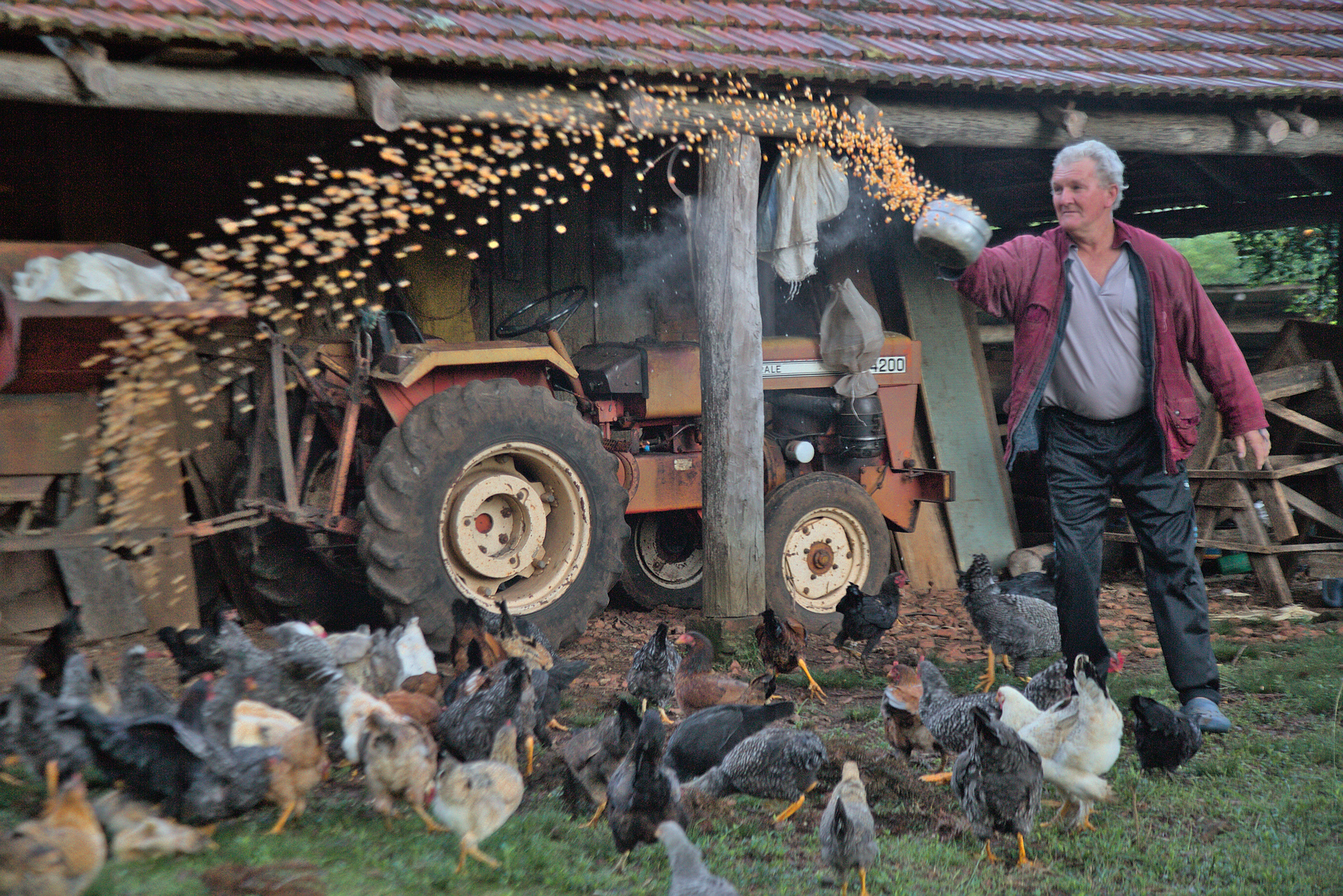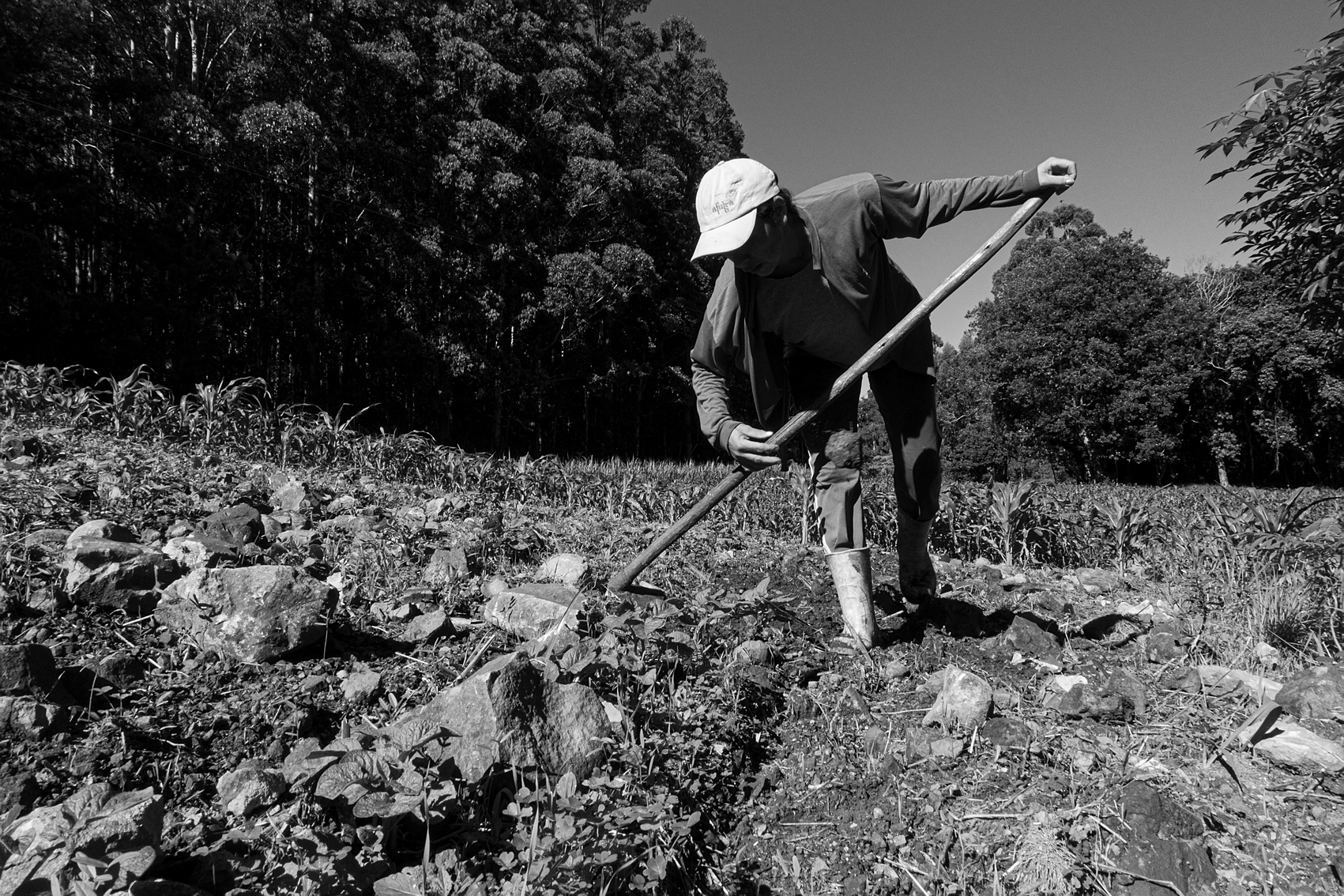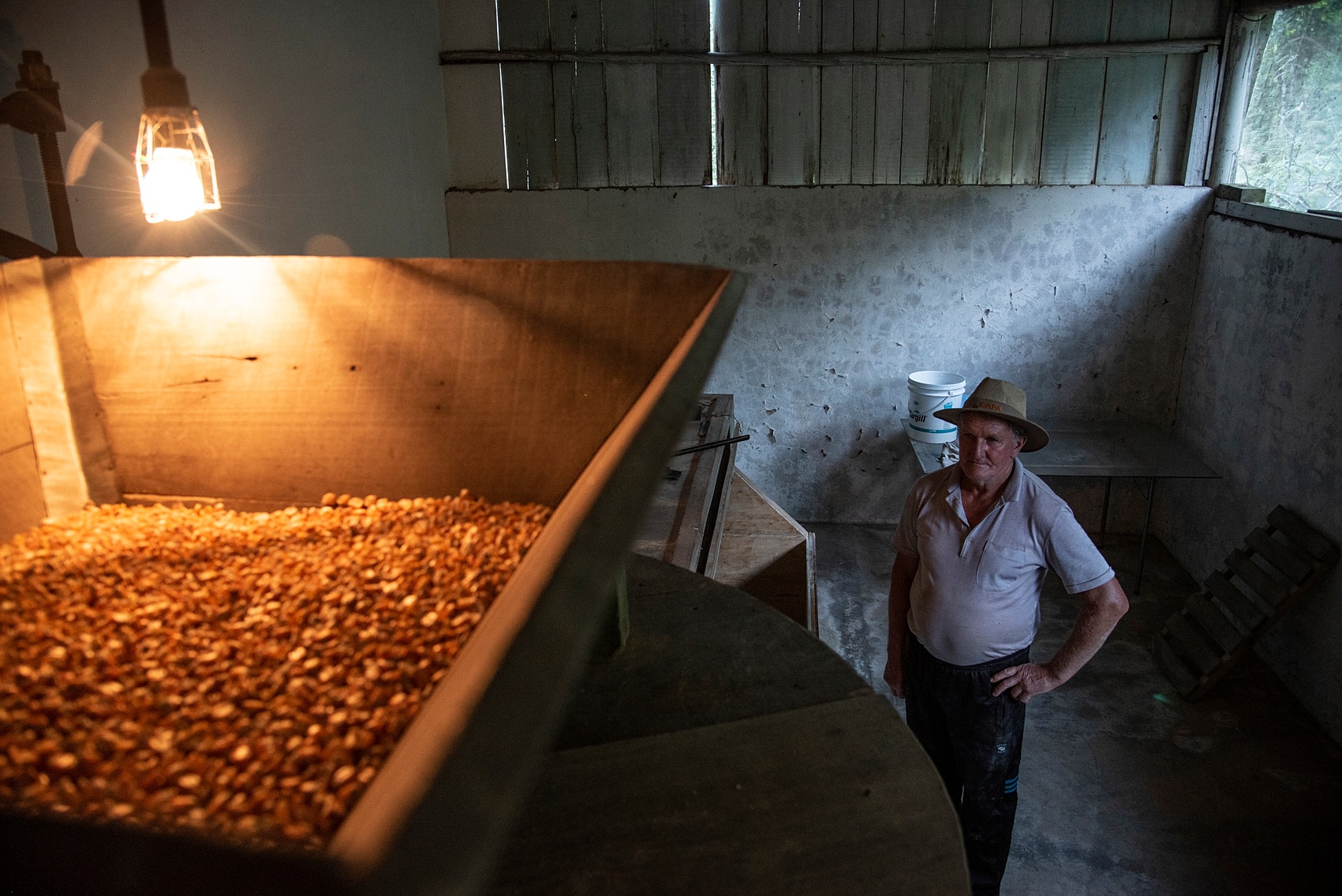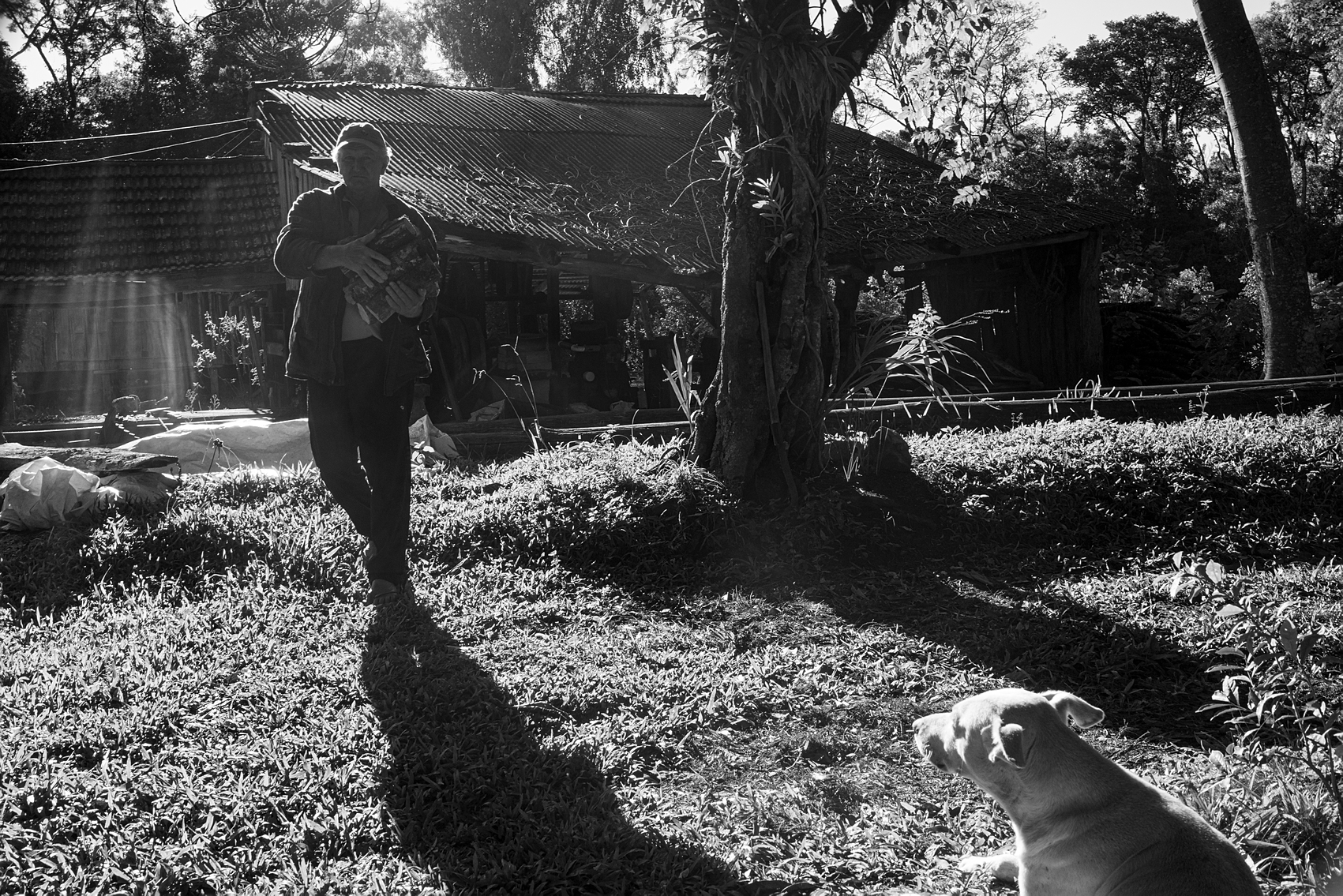
Instead of tobacco, organic food
By Raquel Gurgel | 6 July, 2023
Photo by Mari Mendes - CETAB/Fiocruz
In front of the bountiful table – with rice, beans, meat, corn, cassava, sweet potatoes, cabbage, and cucumbers – Álvaro Luettjohann smiles: “Everything we are about to eat is organic and produced here”. Going to their farm feels like walking into an oasis in a neighborhood marked by tobacco growing and by the use of pesticides. He lives with his wife Adriana in Candelária, a small town in the Brazilian state of Rio Grande do Sul.
Brazil is the largest exporter and the third largest producer of tobacco in the world, according to the Food and Agriculture Organization of the United Nations (FAO). Tobacco crops are highly concentrated in the three southern states, where more than 95% of the Brazilian production come from. Rio Grande do Sul leads this production with more than 50,000 farmers involved, and Candelária is among the 10 largest tobacco producers in the country.
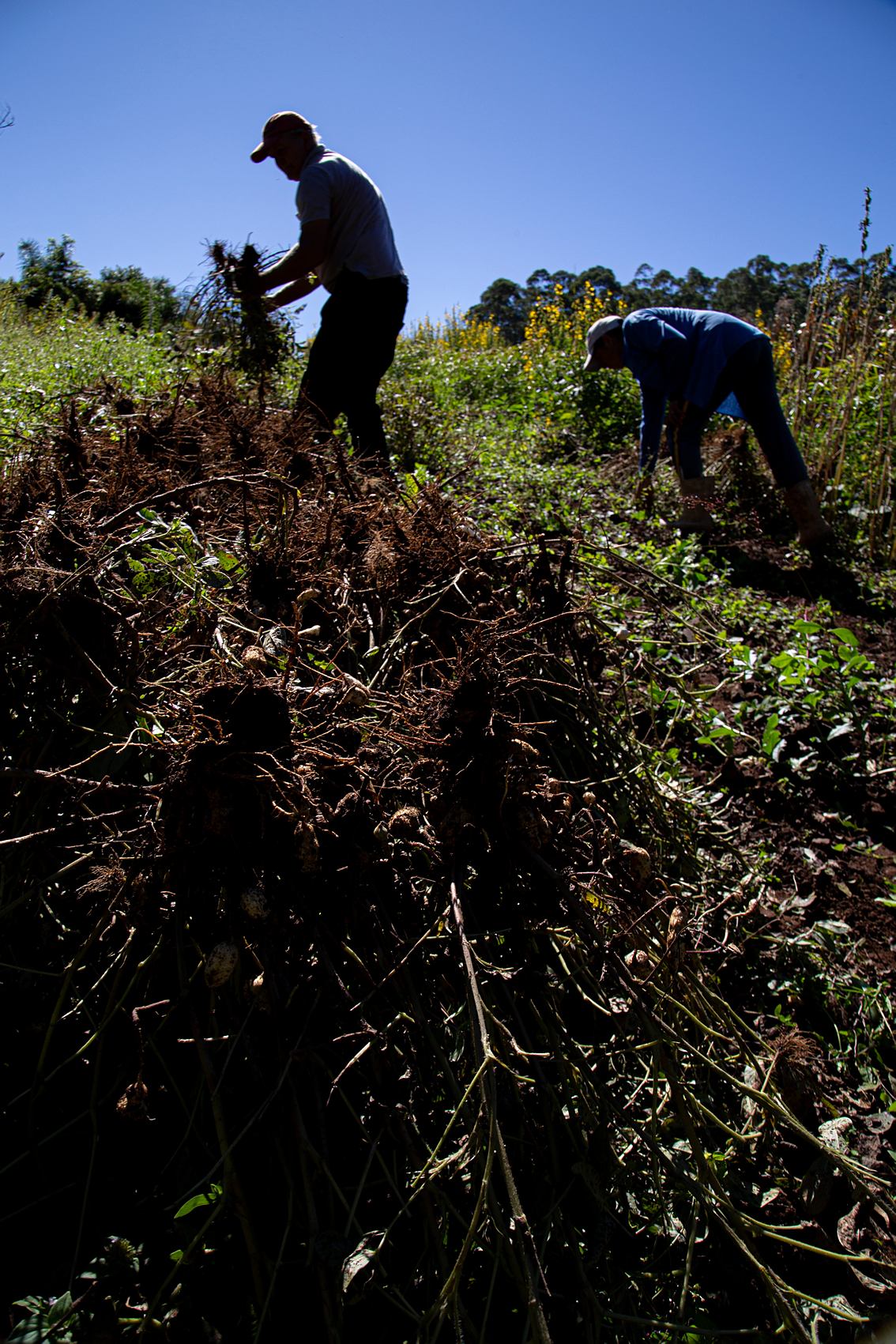
Álvaro and Adriane know the tireless work of a tobacco farmer since their families have grown this crop for generations. But they have both abandoned it decades ago: Álvaro stopped growing tobacco in the late 1980s, and Adriane did it when she married him in the mid-1990s. Instead of tobacco, they only grow food crops. And, in 2004, they completely eliminated the use of pesticides and chemical fertilizers.
Today, they have the organic certification, preserve Creole seeds, and grow nearly all the food they need: rice, seven types of maize and 10 types of beans, peanuts, potatoes, several types of sweet potatoes, cassava, vegetables, chia, sesame, mate and various fruits. The couple also raise animals for milk, eggs, and meat, and have a mill for the production of cornmeal.
Álvaro says he grew up under the discourse of the tobacco industry, hearing that tobacco growing was the region’s true vocation and that it was not worth growing other crops. “But my father never believed that and, although we grew tobacco, he managed to have a diversified farm – and there were some periods when we put tobacco aside. He always said that 'you cannot eat tobacco, so you need to grow food’” Álvaro recalls. However, according to him, his family was persuaded by the agribusiness industry that pesticides and chemical fertilizers were necessary to increase productivity. “But the great productivity we were promised never came, and on top of that our soil became impoverished”, he points out.
After Álvaro and Adriane started their organic production, it took a few years for them to make the soil healthy again, but now they have a well-nourished land, where eventual problems are treated with biological agents and homeopathy.
The couple considers that access to public policies was very important for them to succeed as farmers – they accessed credit programs to purchase machinery and inputs, and also to build the house in which they live.
In order to start organic production, they had the support of the Center for Support and Promotion of Agroecology (CAPA), a civil society organization that introduced them to a cooperative of agroecological producers called Ecovale. They have been selling their products through Ecovale ever since. In fact, joint marketing through cooperatives is a strategy that helps to mitigate a serious problem in the region: farmers often find it hard to sell their food crops.
The couple have no intention of growing tobacco ever again. “We always talk to friends and family members who still grow tobacco for a living, and we try to show that it is possible to have other sources of income”, says Adriane, who is the only one who has abandoned tobacco in a family of 10 siblings. “But it's very difficult to convince them”.
*
The information and views set out on this news are those of the author(s) and do not necessarily reflect the opinion of the Parties to the WHO Framework Convention on Tobacco Control (WHO FCTC), the Parties to the Protocol to Eliminate Illicit Trade in Tobacco Products, or the Secretariat of the WHO FCTC.

